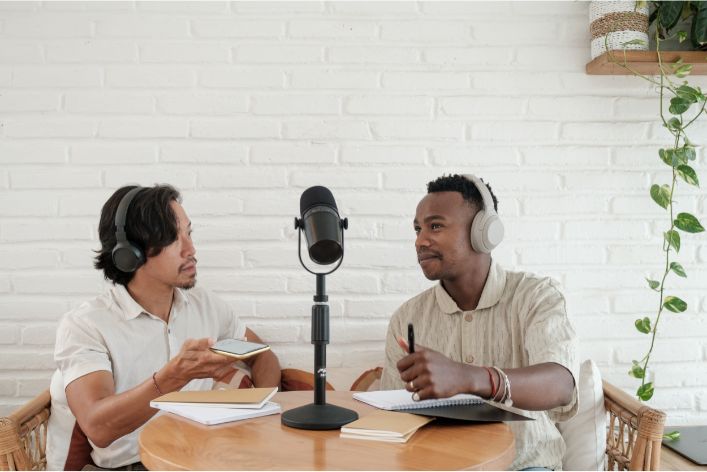Introduction
The role of media professionals in Nigeria’s democracy cannot be overstated. The media plays a crucial role in shaping public opinion and providing information to citizens, which is necessary for a healthy democracy. Nigeria is the world’s seventh-most populous country with over 200 million people.
The country has a democratic system of government, but it has been marred by corruption and instability. However, the media has played an essential role in exposing corruption and holding government officials accountable. Media professionals are responsible for providing accurate and reliable information to the public.
In a democracy, the media acts as a watchdog, ensuring that those in power are held accountable for their actions. Media professionals are also responsible for educating the public about important issues affecting the country.
They provide coverage of events and debates, offering insights and perspectives that help citizens make informed decisions.
Through their reporting, media professionals have the ability to influence public opinion and create positive change in Nigerian democracy. Therefore, the role of media professionals in Nigeria’s democracy is essential and cannot be underestimated.
Read: Nigeria’s Dairy Industry: Exciting Career Prospects
The Function of Media Professionals in Nigerian Democracy
In any democratic society, the role of media professionals cannot be overemphasized. Nigeria, being a country with a fledgling democracy, needs the press to ensure transparency, accountability and to promote good governance. Here are some of the key functions of media professionals in Nigerian democracy:
Providing Objective and Critical Reporting
Media professionals have a responsibility to report on events and issues in an objective and unbiased manner.
The media should be a watchdog, providing citizens with accurate and reliable information. To achieve this, media professionals must stay committed to finding and reporting the truth, regardless of the parties involved.
Holding Government Leaders Accountable
The media serves as a check on the power of the government by monitoring and reporting on the actions and statements of those in leadership positions.
Journalists must hold government leaders accountable for their actions and decisions by reporting on issues that affect the public and by investigating and exposing corruption and wrongdoing.
Generating Public Debate and Consciousness
The media has the power to shape public opinion, and as such, media professionals should use their platform to generate public debate and raise social consciousness.
They should provide a platform for different voices to be heard, encourage citizens to engage critically with political and social issues, and promote democratic values such as pluralism, tolerance, and respect for human rights.
Bridging the Communication Gap Between the Government and Citizens
The media can also serve as an intermediary between the government and citizens. Media professionals can facilitate communication and interaction between citizens and government officials, ensuring that both parties are informed about each other’s perspectives and concerns.
By acting as a bridge, media professionals can help ensure that government policies and decisions are more inclusive and representative of the needs and aspirations of the general populace.
Transform Your Career in Nigeria
Discover unmatched expertise with our personalized Career Consulting service. Navigate Nigeria’s job market with a strategy tailored just for you.
Get StartedIn essence, media professionals play a crucial role in Nigerian democracy by promoting transparency, accountability, and good governance through their reporting and interactions with the government and citizens.
However, media professionals cannot achieve these goals alone; they require the support and cooperation of government officials, civil society organizations, and citizens. This collaboration is essential for the development and deepening of democracy in Nigeria.
Read: Behind the Scenes: Nigerian TV Production Careers
Challenges Faced by media professionals in Nigeria
Media professionals play a vital role in any democracy, and Nigeria is no exception. However, the challenges they face in the country are quite daunting. Here are some of the major challenges faced by media professionals in Nigeria today.
Intimidation and harassment by government officials
One of the biggest challenges faced by media professionals in Nigeria is the issue of intimidation and harassment by government officials.
In some cases, journalists have been subjected to physical violence, false arrests, and detention without trial for daring to report on certain issues. This is a clear violation of press freedom and a serious threat to the democracy of the country.
Lack of access to government information
Another major hindrance to the work of media professionals in Nigeria is the lack of access to government information.
Many important documents and reports are classified, and attempts to access them are often met with bureaucratic hurdles.
This makes investigative journalism difficult and restricts the ability of journalists to hold the government accountable.
Read: Making Waves: Radio Broadcasting Careers in Nigeria
Dependence on advertisement revenue
A significant challenge faced by media professionals in Nigeria is their dependence on advertisement revenue.
Many media organizations rely heavily on advertising as their main source of funding. This can sometimes result in editorial decisions being influenced by advertisers, compromising the independence of the media and their ability to report accurately on issues.
Inadequate legal protection for journalists
Finally, a crucial challenge facing media professionals in Nigeria is the lack of adequate legal protection for journalists. The country’s laws do not provide sufficient safeguards for journalists against harassment, intimidation, and violence. This situation makes it difficult for journalists to carry out their work without fear of reprisals.
The challenges faced by media professionals in Nigeria are numerous and significant, posing a threat not only to the freedom of the press but also to democracy in the country.
Addressing these challenges will require a concerted effort from the government, media organizations, civil society, and the international community. Only by ensuring that journalists can work independently and without fear can we guarantee a healthy and vibrant media landscape in Nigeria.
Read: Youth and Entertainment: Nigeria’s Rising Stars

Uncover the Details: The Role of PR in Nigerian NGOs: A Deep Dive
Impacts of Media Professionals in Nigerian Democracy
Media professionals play a vital role in promoting democratic values in Nigeria. They facilitate the growth of democratic institutions by providing a platform for citizens to express their views and hold government accountable. This chapter discusses the various impacts of media professionals in Nigerian democracy.
Facilitating the Growth of Democratic Institutions
The media plays a significant role in facilitating the growth of democratic institutions in Nigeria. They provide a platform for citizens to participate in the democratic process and hold their leaders accountable. The media also serves as a watchdog by monitoring government activities and exposing corruption.
In recent years, the media has played a pivotal role in promoting democracy in Nigeria. They have organized debates and discussions during elections, which allow citizens to hear from candidates and make informed decisions.
Additionally, the media has played a crucial role in exposing electoral fraud, which has led to the cancellation of fraudulent elections and reruns. As a result, the media has helped to strengthen democracy in Nigeria.
Promoting Transparency and Accountability in Governance
The media plays a vital role in promoting transparency and accountability in governance. They investigate and report on government activities and hold leaders accountable for their actions.
The media’s role in exposing corruption has made it possible for government officials to be held accountable for their misdeeds.
The media also helps to promote transparency by providing citizens with accurate information about government policies and programs.
Publish Your Professional Profile, Business or Brand
Showcase your expertise, gain trust, and boost visibility instantly on Professions.ng.
Publish NowThey also help citizens to understand the implications of government actions on their lives. Through this, the media helps citizens make informed decisions about their government.
Read: Success Stories: Top Nigerian Entertainment Executives
Strengthening the Role of the Public in Democratic Processes
The media strengthens the role of the public in democratic processes by providing them with a platform to express their views.
Through editorials, letters to the editor, opinion pieces, and social media platforms, the media allows citizens to participate in the democratic process. This participation helps to strengthen democracy by promoting inclusivity and diversity of thought.
The media also plays a vital role in educating the public about their rights and responsibilities as citizens.
They provide information about the rights and responsibilities conferred on citizens by the constitution. Moreover, the media educates citizens on the importance of participating in elections and holding their leaders accountable.
Exposing Corruption, Human Rights Abuses, and Other Social Ills
The media’s role in exposing corruption, human rights abuses, and other social ills is vital to strengthening democracy in Nigeria. By investigating and reporting on these issues, the media puts pressure on the government to address them. This, in turn, promotes good governance and accountability.
The media has played a critical role in exposing cases of corruption in Nigeria. They have investigated and reported on cases involving embezzlement, money laundering, and misappropriation of funds. Additionally, the media has exposed human rights abuses, such as police brutality and extrajudicial killings.
In review, media professionals play a significant role in promoting democracy in Nigeria.
They facilitate the growth of democratic institutions, promote transparency and accountability, strengthen the role of the public in democratic processes and expose corruption, human rights abuses, and other social ills. As such, the media is a critical player in strengthening democracy in Nigeria.
Read: The Significance of Drilling Engineers in the Gas Industry of Nigeria
Learn More: Music Publisher: The Unsung Hero of Nigeria’s Music
Conclusion
Media professionals play a pivotal role in Nigeria’s democracy. They serve as the watchdogs, capturing the voices of the people and holding the government accountable.
Media professionals provide a platform for public discourse and offer solutions to various issues affecting the nation.
However, these media professionals are not immune to repression, harassment, and violence, especially when they investigate sensitive topics.
Therefore, the government needs to protect journalists and guarantee media freedom, as it is an essential prerequisite for democracy.
Citizens also play a vital role in supporting media professionals by acknowledging their importance and demanding that their rights are respected.
Citizens should speak out against any forms of injustice against media professionals and promote a culture of respect for media freedom.
In short, media professionals play a crucial part in shaping Nigeria’s democracy. Hence, it is crucial that the Nigerian government support and protect journalists while citizens must actively participate in ensuring media freedom. A free and open press is essential to the achievement of sustainable democracy in Nigeria.




